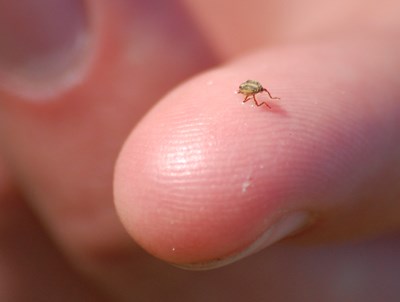Milfoil weevils have been let loose to take over area lakes.
It is a good thing, however, since the sesame seed-sized insects are entirely harmless, and survive by eating the water weed Eurasian Watermilfoil.
Lakes in the Greater Sudbury area have been affected by Eurasian Watermilfoil, a weed that takes over lake bottoms, choking out other native plants and organisms. When multi-species habitats aren't able to thrive, fish and other aquatic life can be threatened, Nancy Cushing, lake management division manager at the Ohio-based company EnviroScience, said.
It's also a “big problem for recreation,” while “decreasing property values,” she added.
Between now and the end of August, thousands of weevils will be deposited into eight area lakes, including Simon, Long, Richard, McFarlane, St. Charles, Hannah, Middle and Grant. They will feed on the Eurasian Watermilfoil.
Cushing said the Watermilfoil could also be removed by harvesting it, but the process needs to be carried out annually.
“It doesn't really eliminate it, it just cuts it out of the water on a seasonal basis,” she said.
Cushing bred the local insects in Greater Sudbury through the help of College Boréal's Natural Resources program.
Stephen Monet, manager of environmental initiatives at the city, said the weevils will reduce the unattractive, invasive Watermilfoil, and allow other native plant species to begin repopulating the lakes.
The project is is funded by the City of Greater Sudbury. In January 2011, council budgeted $174,000 for the insects, which will be stocked in local lakes for the next three years.
To maximize the success of the project, Lesley Flowers from the Milfoil Focus Group has some requests to make of people using the affected lakes:
“We are asking that residents thoroughly clean boats and trailers before moving them from one lake to another to prevent the spread of the weed, respect the marked areas where the weevils have been deposited and maintain a buffer of native plants along the shoreline as a winter habitat for the weevils.”
According to a media release from the city, weevils shouldn't be a bother to lake users. They do not fly or bite, and because of their size, it's unlikely residents will even notice them.
-Posted by Jenny Jelen.
